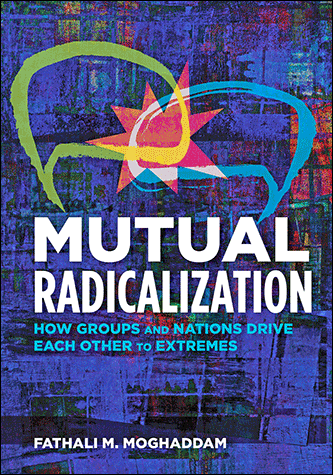CCT Affiliate Faculty Fathali Moghaddam's new book on how groups drive each other to extremes
 Prof. Fathali Moghaddam, an affiliate faculty member of the CCT Program, is featured on the Georgetown University website.
Prof. Fathali Moghaddam, an affiliate faculty member of the CCT Program, is featured on the Georgetown University website.
Read all about it in “Going to Extremes: New Book Shows How Groups, Nations Radicalize Each Other.“
From the publisher’s book description:
Radicalization has become a serious global problem. Groups and nations are increasingly embroiled in escalating conflicts with one another that are defined by pathological hatred and ideological polarization, with devastating consequences, including terrorism and war.
Social psychologist Fathali M. Moghaddam calls this process “mutual radicalization.” In this groundbreaking book, he explores its causes and potential solutions.
Drawing from well-established psychological principles, Moghaddam presents a dynamic, cyclical three-stage model of mutual radicalization that explains how groups gather under extremist ideologies, establish rigid norms under authoritarian leadership, and develop antagonistic worldviews that exaggerate the threat each poses to the other. This process leads to intensifying aggressive actions that can even reach the point of mutual destruction.
Moghaddam applies his model to 10 real-world case studies of mutual radicalization that focus on three main areas: the conflict between Islamist radicals and extreme nationalists in the West; nations that are mired in longstanding hostilities, including North Korea and South Korea; and the increasingly toxic atmosphere in American politics.
Moghaddam offers practical solutions for achieving deradicalization and highlights historical successes, such as German reunification.
Click for purchase details.
